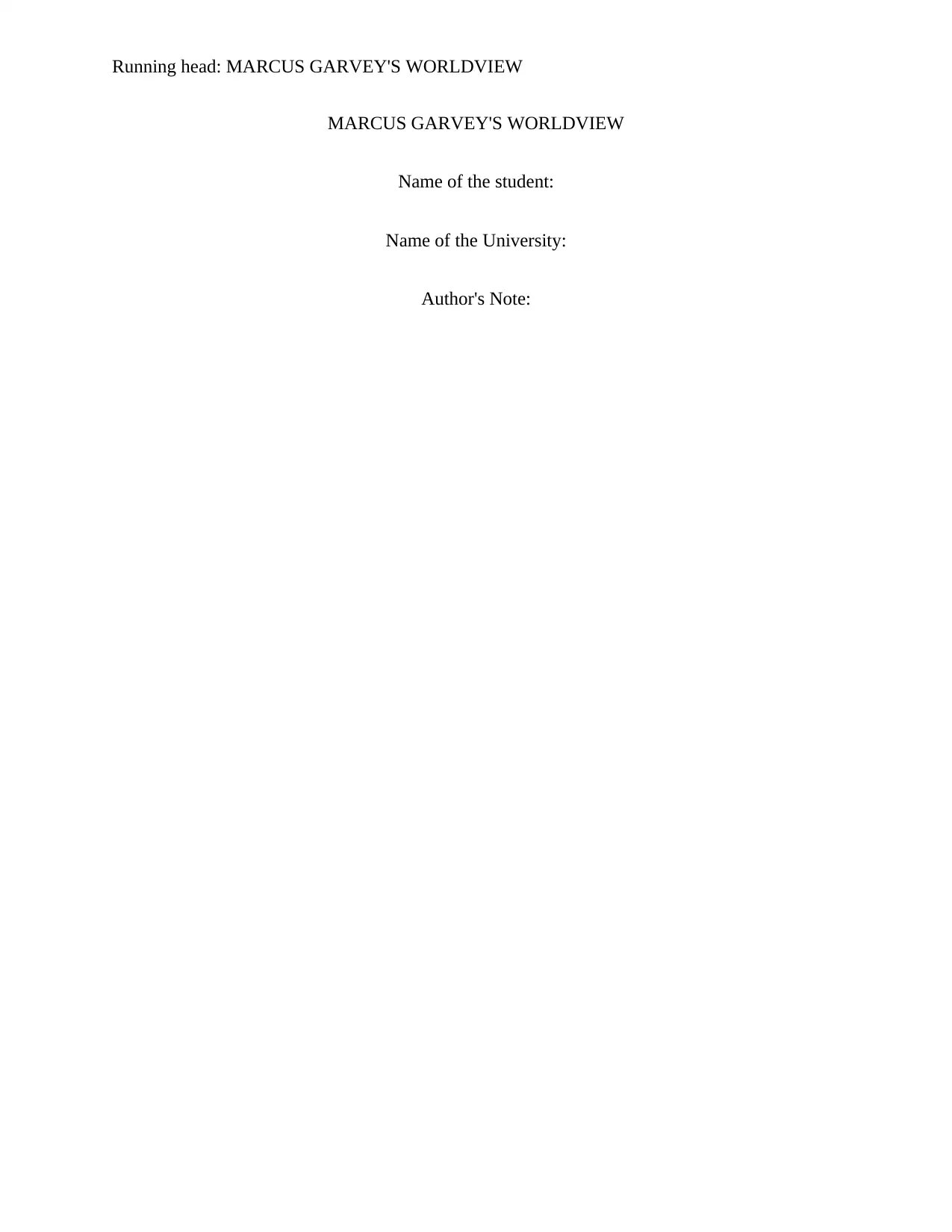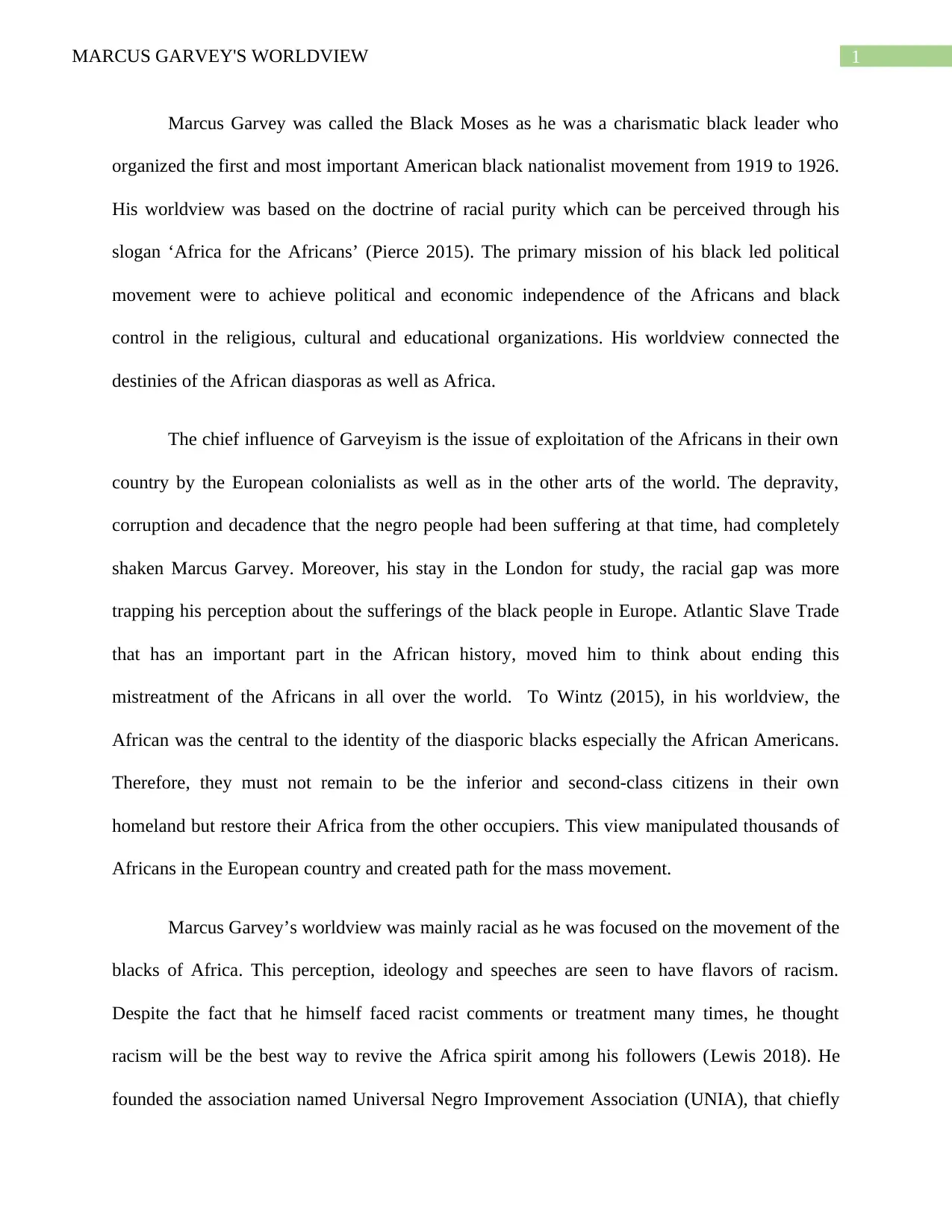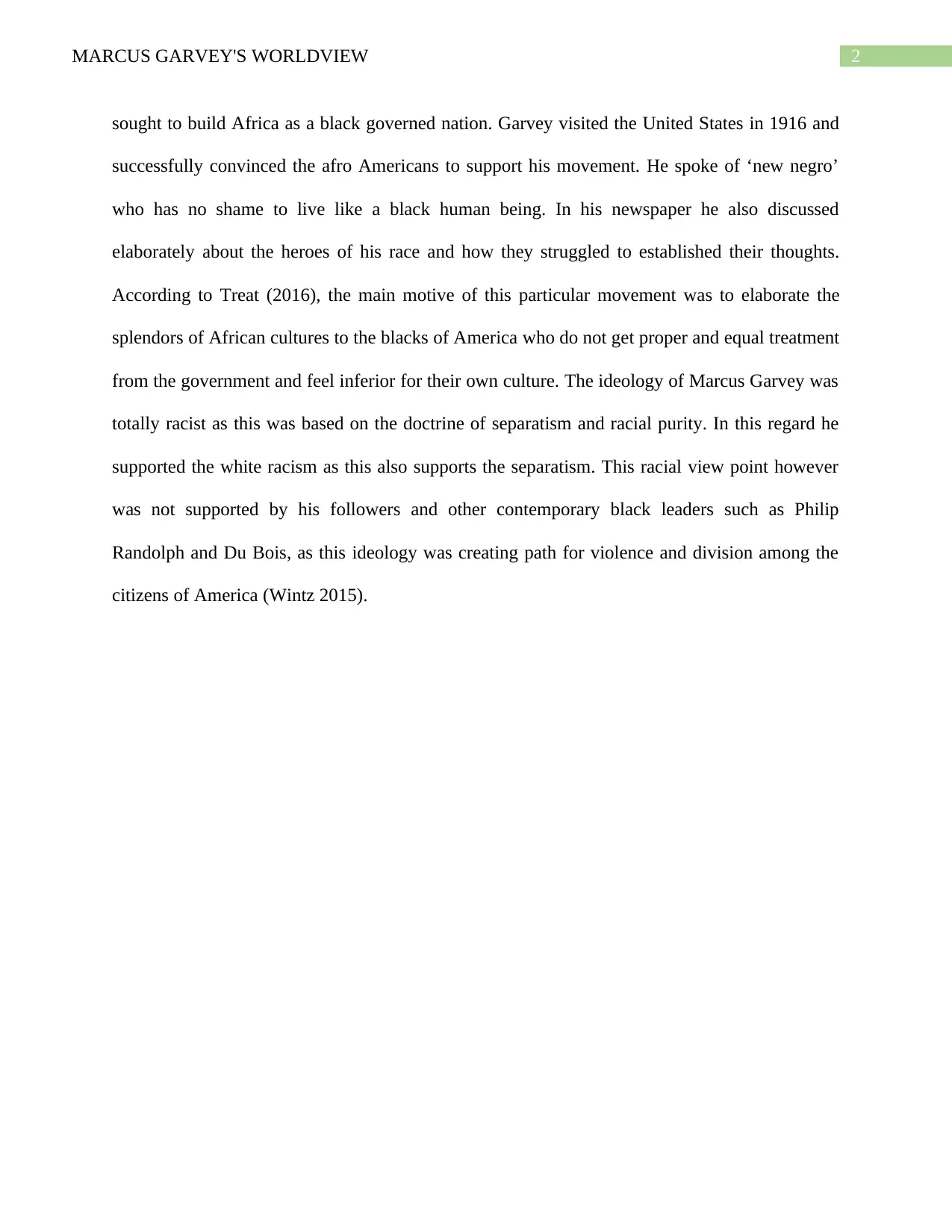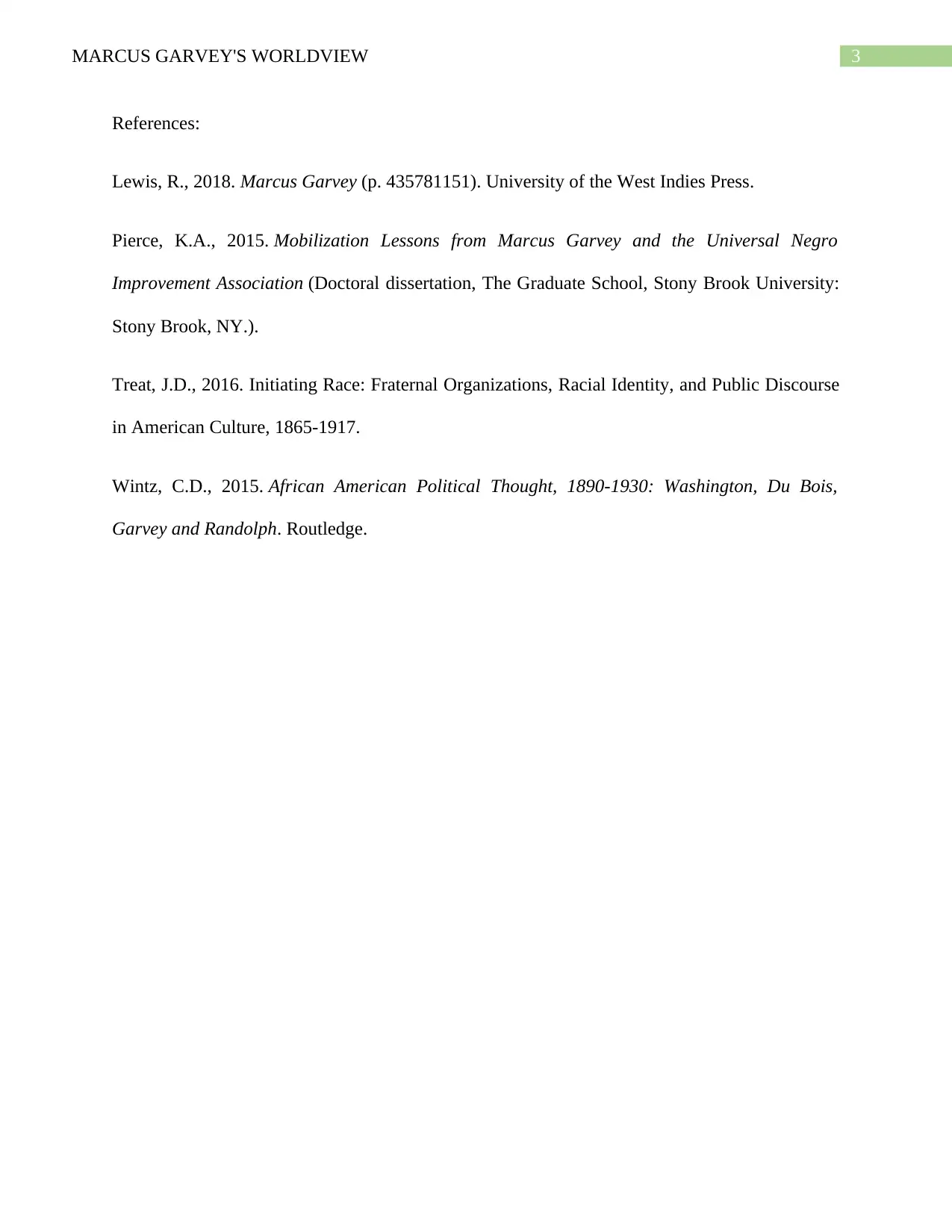Analyzing Marcus Garvey's Worldview, UNIA, and Black Nationalism
VerifiedAdded on 2023/05/30
|4
|712
|136
Essay
AI Summary
This essay delves into the worldview of Marcus Garvey, a prominent black leader and founder of the Universal Negro Improvement Association (UNIA), exploring his doctrine of racial purity and the 'Africa for Africans' slogan. It examines his mission to achieve political and economic independence for Africans and black control over religious, cultural, and educational institutions, connecting the destinies of the African diaspora and Africa. The essay analyzes the influences of European colonialism and the Atlantic Slave Trade on Garvey's ideology, highlighting his focus on racial identity and the desire to restore Africa from foreign occupation. It also discusses the controversial aspects of his racial views, his advocacy for separatism, and the differing opinions of other black leaders, providing a comprehensive overview of Garvey's impact on black nationalism and the African American community.
1 out of 4






![[object Object]](/_next/static/media/star-bottom.7253800d.svg)